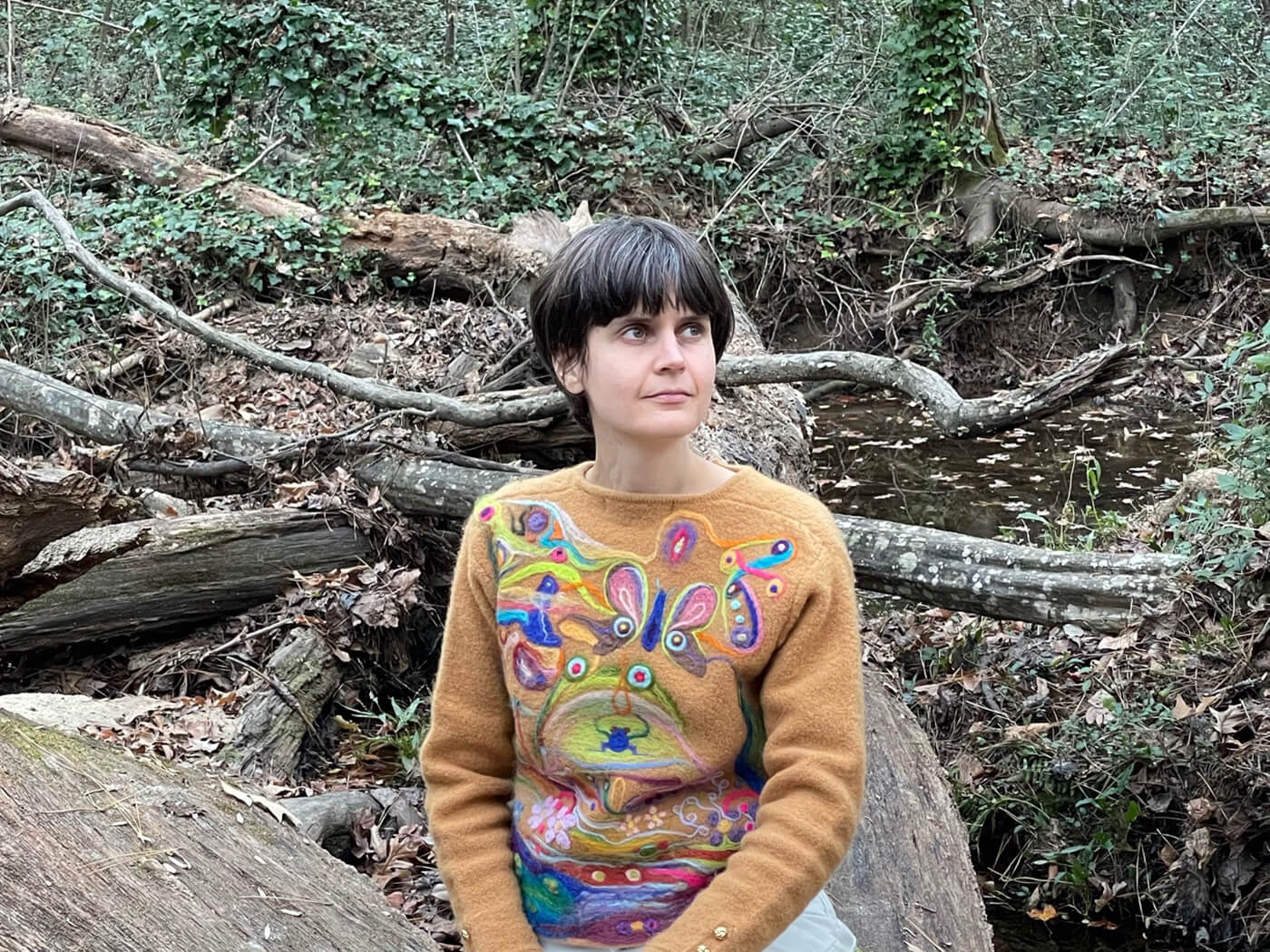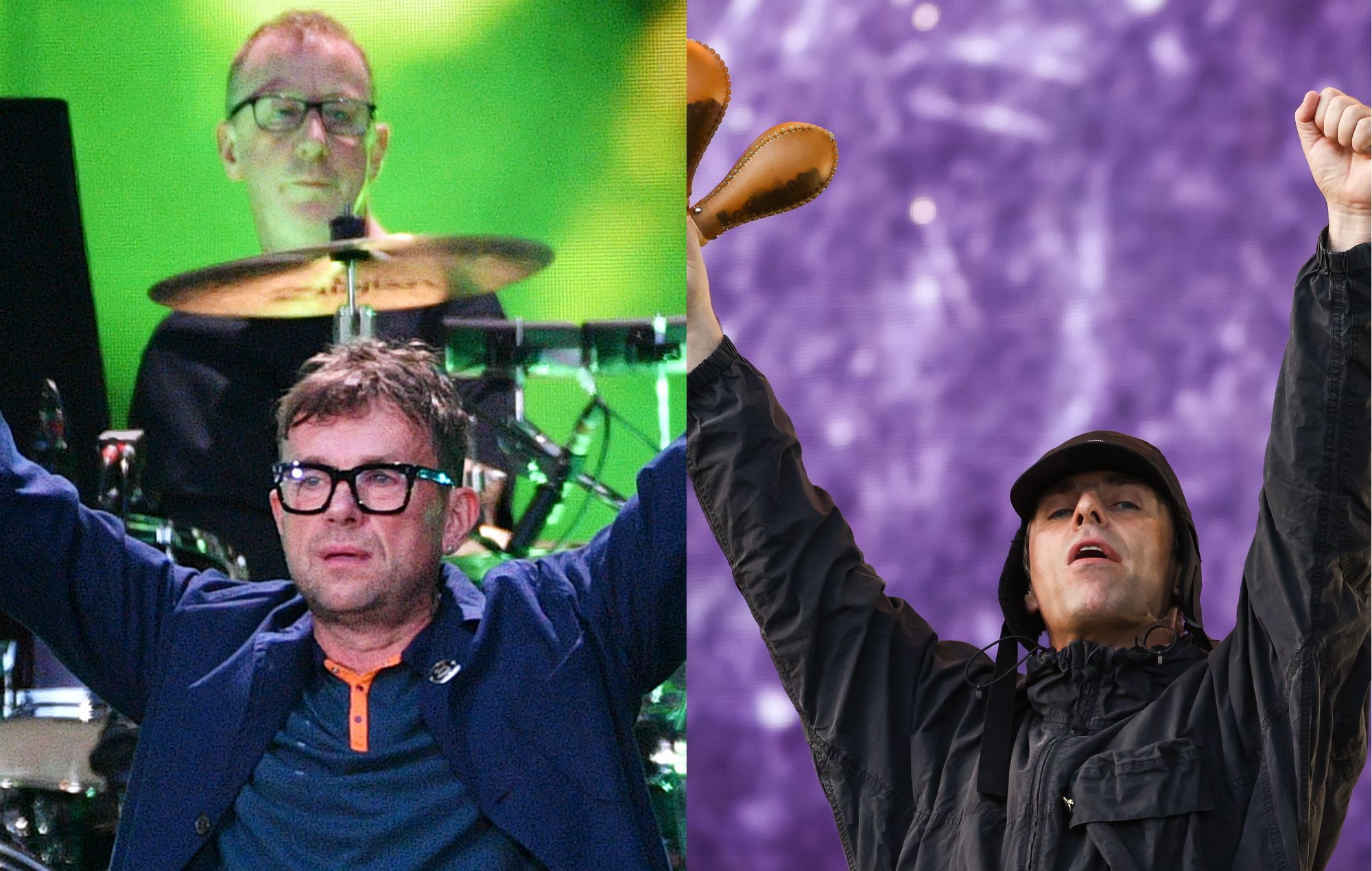
“Meditation is fundamental because it puts me in touch with my body,” American guitarist and singer-songwriter Sarah Louise reflects when asked about her ‘Earth practices’, “which as an extension of Earth, communicates differently than my thinking mind.” Read one way, this deceptively simple statement hosts an entire universe of potential: the use of meditation and intimate reflection to loosen the shackles of the always-busy mind and open it to the mysterious other; placing a pause upon the hurriedness of our everyday existence; prioritising the knowledges and intuitions of the body over the ideological conceits of society.
Louise’s musical path to this point has been refreshingly direct. She first broke cover last decade, with a string of lovely, singular guitar solo albums. Louise also recorded two gorgeous LPs of beautiful folk-drone constructs with Black Twig Pickers member Sally Anne Morgan as House & Land. Significant changes came with Louise’s own 2019 record Nighttime Birds And Morning Stars, though, where she turned a radical corner, her guitar interfacing with electronics in feverishly creative ways. Tellingly, she seemed to bring the same capacious energies that marked her acoustic guitar sides to her explorations of electronics.
Earth Bow continues those experiments, though now they feel even less like improvised attempts and more like part of the fundamental bedrock of Louise’s compositions. There’s something natural, fungal almost, about the way the electronics spill and expand across the 10 songs of Earth Bow; it’s no surprise to discover that she has lived in rural Appalachia for a decade, and has a strong, intuitive relationship with the natural world. Strikingly, she has captured some of the complexity of the natural world with her music – there’s unpredictability but harmony too, alongside oneness with the creative impulse, Louise creating hand-spun cartographies of musical ecologies.
Earth Bow is structured as two side-long, oneiric suites, five songs apiece, each side seamlessly wound with a taffeta of electronics. “Where The Owl Hums” offers a prefatory summary of the album, built from samples of other songs, its ground a gentle, ever-cresting wave of drone, over which Louise’s incantations soar. She then drifts into the martial splendour of “Jewel Of The Blueridge”, where she’s at one with the world, sighing “Grass is sweet like cinnamon/Oh it feels like home to me” before chanting “Down past the water we arise”. There’s a bustling, fervid field of micro-textures running under this song, from amoebic Fripp-esque guitar to tingling bells and pin-prick synthesis.
While these two songs set up the general dynamic of the album, there’s still plenty more to discover. “Summertime Moves Slow” takes the textures of New Age and submerges them in distorted dronology; there’s something of Arthur Russell’s weightless cello drift here too. “Your Dreams” is an acoustic lullaby, electronics pinging across the audio spectrum like shooting stars as Louise sounds awed by that which surrounds us all: “My dreams are your dreams/I know you can see them/Can you feel them?” Her voice is surprisingly limber, even as she often focuses on a child’s clutch of notes, the better to extract emotional resonance from permutation. If anything, her voice is redolent of Canadian singer-songwriter Jane Siberry, with a similar timbre and delivery.
As Earth Bow progresses, it builds in intensity, and by the time we reach the ageless arpeggios of “Where Heron Fish At Dawn”, where Louise collaborates with Bitchin’ Bajas’ Cooper Crain on a techno-poem to the elemental power of nature, we’re surprisingly close to the maxi-minimalist proto-house of Manuel Göttsching’s E2-E4. There’s a continual sense of wonder throughout the album, of unexpected developments, and yet what’s most impressive is the way everything here – and it’s a busy album in some respects, genre-defiant in its openness – sits together so well. Everything flows.
Louise wants to push things still further with Earth Bow, developing guided meditations, a film collaboration with multimedia artist Katrina Ohstrom, and an immersive online space co-designed with Louise’s sister, Anna Henson: “There’s spatialised sound that will allow people to make their own mixes of the record based on their location in the space, as well as a screen for viewing music videos and livestreams,” she explains. “People will have a lot of agency in how they experience the space, and I hope it can provide opportunities for meaningful interaction.” That feels core to what Louise is doing with Earth Bow – finding ways to enable the agency of the individual, and to help them locate a meaningful space within their everyday world, the album endlessly expansive in its desire to help and to heal.





